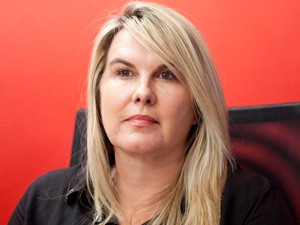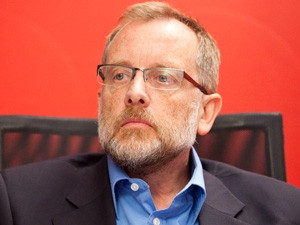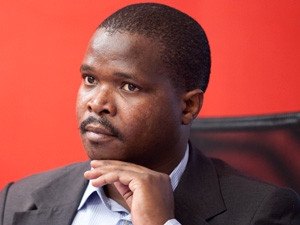
If anything sums up the ITWeb roundtable discussion on expansion into Africa, it's the statement that, for any South African business, the only sensible strategy for growth is to be grasping opportunities in Africa, because the local economy is unlikely to deliver decent growth. Unfortunately, nobody actually articulated that, but it was, nevertheless, the feeling that remained after all was said and done.
Mark Walker, director: Insights & Vertical Industries, MEA & Turkey at International Data Corporation (IDC), set the ball rolling by providing insight into expected growth rates within the local ICT industry. "South Africa's (ICT industry) growth rate for 2009-13 is around 7%. If you compare that to other places in the region, they're all 7% to 8% or above, making sub-Saharan Africa very attractive right now," he says.
He notes that much of this growth is being driven by the focus on building communications infrastructure on the continent, and that's likely to continue for some time. The balance of the growth is being driven by verticalisation across industries, especially in the financial sector and government, and the maturation of Nigeria's banking sector, where Basel II has become a big issue.
Steven Kewley, business development manager at Cisco, agrees with the communications infrastructure part, Cisco having had a hand in laying some of the undersea cables that went in recently. However, he says the speed of the upstream growth as a result of those investments was disappointing for some.
"I guess there were inflated expectations of what would happen when the cables landed, but obviously, it's investment in the infrastructure and businesses are becoming more adoptive on the back of that and that starts generating growth," he comments.
LGR Communications business development manager Ayanda Dlamini feels increased availability of fast, relatively cheap bandwidth will prove to be a significant enabler for all business on the continent.
Basel II
Edward Sungura, regional director for sub-Saharan Africa at SAS, says Walker's analysis of the Nigerian banking sector is correct. "We're already dealing with more than 10 banks in Nigeria on Basel II and we're in negotiations with other banks," he elaborates.
Furthermore, he says demand spread to Ghana after the central bank adopted Basel II, thereby obligating all Ghanaian banks to comply with the internationally recognised GRC standards. Sungura adds that regulatory requirements are not the only driver; high levels of merger and acquisition activity involving new stakeholders are setting very strict requirements to protect shareholder's money.

He says there are also soft issues to do with the movement of labour, and particularly, that involving the returning diaspora. "If you look at the banks in Nigeria, most of the people heading risk and compliance sections are Nigerians who've been working overseas. They're coming in at a very high cost and with best practices."
Having talked about the drivers of growth in Africa, the discussion then naturally turns to inhibitors. First at the plate is Dlamini, who speaks critically of the difficulties encountered when trading across borders.
He gives an example of a piece of telecommunications equipment being shipped from South Africa to Swaziland, which he says would take about three hours to clear the border. "The same thing might take you a week to [get] into Mozambique," he says.
BRICS to us is a risk, not an opportunity. I don't see South Africans in Brazil, I see the Brazilians here.
Louise Robinson, sales director at Database 360, raises another key inhibitor: language and the cultural legacy. Ghana and Cote d'Ivoire offer great opportunities right now, but you'd better be able to speak French, she quips.
Dlamini agrees and cites Cameroon, which he describes as multilingual country where the language of business is English. "But we find that it's much, much easier to go in there with a French-speaking person," he adds.
Cultural hurdles
Rakesh Parbhoo, managing executive at Dimension Data SA, is unequivocal in his assessment: "Local knowledge, local inland partners, and local people," he says.

He also touches on the diaspora and lauds the hiring of people who've had international experience. "That's the only way to do it; it's very difficult to run it from South Africa; the laws are different and the culture is something else. How business is done is critically important."
Sungura adds: "You'll be surprised how many people are sitting in the diaspora that are looking for ways to come back; it's only that they don't want to without having a job waiting for them. And you can get a mix of people who understand the culture but who are also exposed to best practice, which is a good thing."
Erasmus Jacobs, solutions manager for the rest of southern Africa at Dell Africa, explains that his company split reporting channels in Africa down the middle. North and West Africa is managed from Morocco; and the rest is managed from South Africa, he says.
We're already dealing with more than 10 banks in Nigeria on Basel II, and we're in negotiations with other banks.
Jeremy Waterman, MD at Sage ERP Africa & Middle East, concurs that language poses challenges. "In our scenario, the Portuguese guys from Portugal manage the Portuguese territories and the French manage the English - I'm not sure why the English don't manage the English - but they do, and it's difficult to manage," he says.
Another challenge is that a vendor might be talking to executives in English, but very often the people on the ground want to communicate in their own tongue, creating a potential nightmare for the support infrastructure.
Slipping away
Pete da Silva, CEO of the Jasco Group, cautions local companies about thinking they can just stroll into Africa and scoop up the business. We have our own challenges, political and attitudinal, he remarks, and the competition is rife - especially from eastern and southern Europe. And then there's BRICS.

"I've never seen so many Brazilians. They're in Angola, they're in Mozambique. That's their gateway to Africa, not SA," he says. "BRICS to us is a risk, not an opportunity. I don't see South Africans in Brazil, I see the Brazilians here; I don't see South Africans in India, I see the Indians here; and we won't talk about the Chinese. We've got to fight for this business otherwise we're going to lose it," says Da Silva.
Marius Snel, director at Knotion, suggests SA currently has competitive advantage over Europe based on price. He also believes the country can compete with India on the basis of skills, but that may not last for very long.
Where Knotion has had good results is placing South Africans in the 40- to 50-year age group using an expatriate model and focusing on skills transfer.
Da Silva says there are three models for business in Africa: a distribution model, using expatriates, and the local model. "We do projects on the expat model but the bread-and-butter business, Monday-to-Monday, has to be local, otherwise you don't get sustainable business," he adds.

Perhaps the most disturbing thing to come out of the roundtable is the way in which South Africans are viewed on the continent: as brash, arrogant hypocrites. Says Sungura: "I'm from Kenya and I've spoken to many people about South African companies. One guy said, 'These guys come here, talking about partnerships, but we can see through them and we're going to milk them.'"
The lesson, clearly, is that South Africans have to look at partnerships from both sides and should invest in countries they enter. Another useful point to emerge from the discussion is that doing business in Africa is about more than just the capital cities. There's plenty of business to be found in smaller cities and towns. A successful strategy would be to sew up all the small towns - and the capitals may fall into your lap.
First published in the July 2013 issue of ITWeb Brainstorm magazine.
* Article first published on brainstorm.itweb.co.za
Share